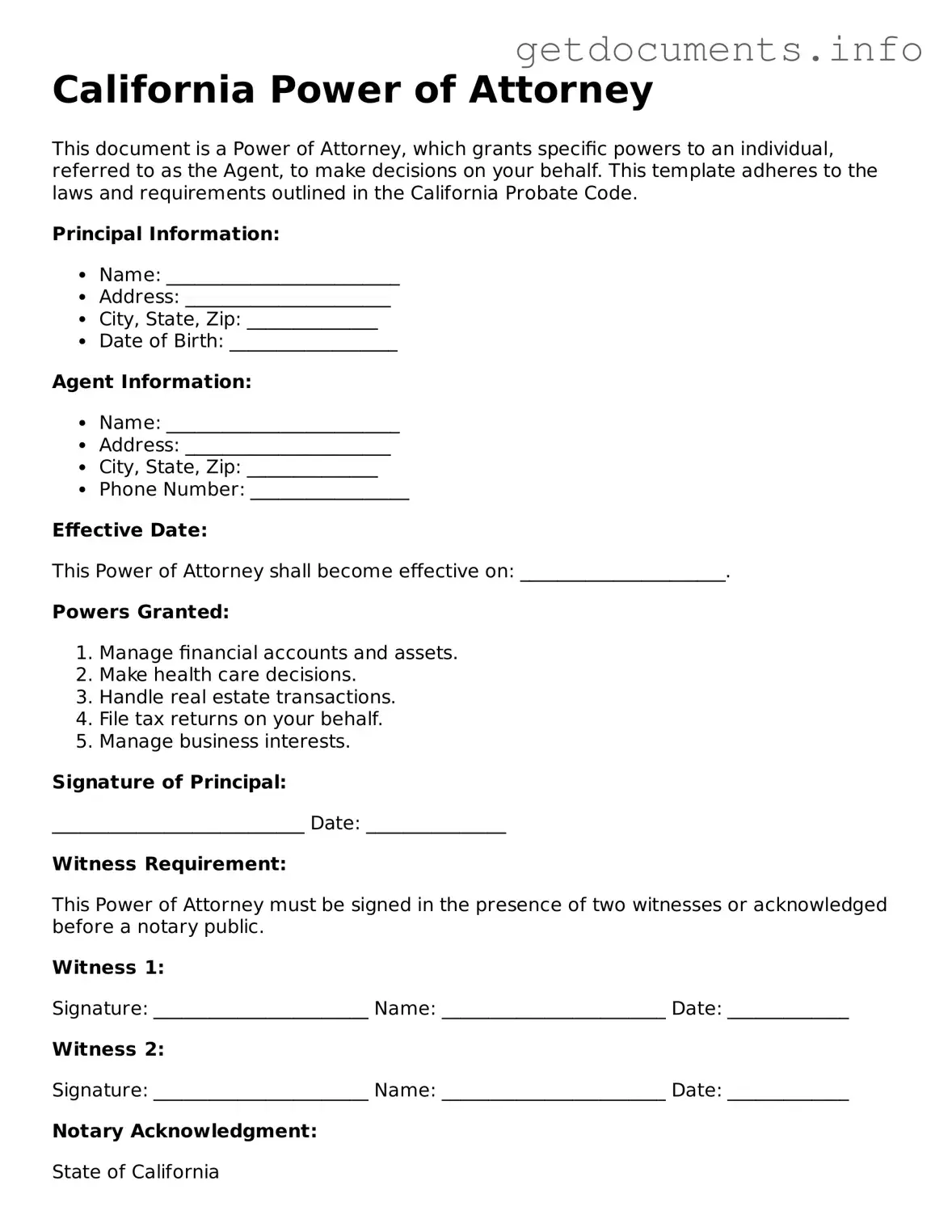Free Power of Attorney Template for California
A California Power of Attorney form is a legal document that allows an individual to designate another person to make decisions on their behalf. This form is crucial for managing financial, legal, and medical matters when one is unable to do so. Understanding the importance of this document can help ensure that your wishes are respected and upheld.
Act now to protect your interests by filling out the California Power of Attorney form. Click the button below to get started.
Access Power of Attorney Editor

Free Power of Attorney Template for California
Access Power of Attorney Editor
Got places to be? Complete the form fast
Fill out Power of Attorney online and avoid printing or scanning.
Access Power of Attorney Editor
or
⇩ PDF File
